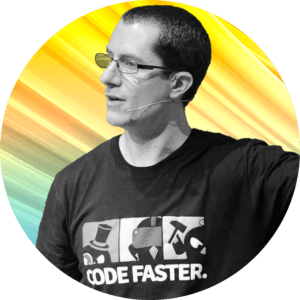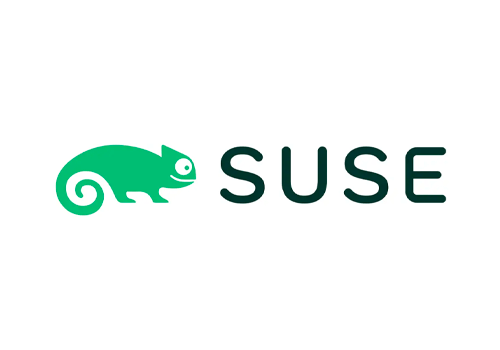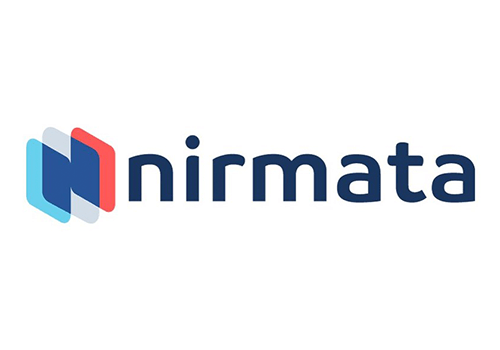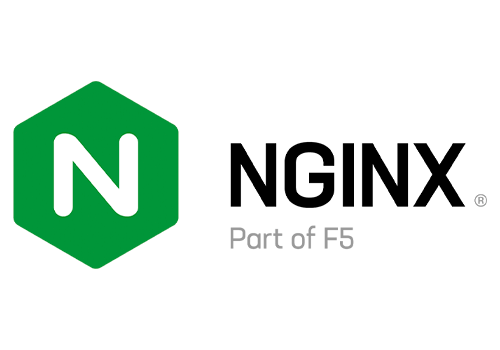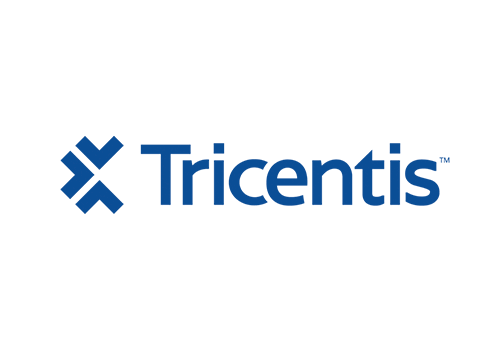Enterprise Kubernetes
March 15, 2023The digital transformation enablers of DevOps and cloud are driving increasingly distributed computing and software architectures. This means that applications are being built as discrete functional parts i.e. as microservices. Now there are more parts to manage and what we have gained in our ability to make changes at speed, we’ve traded off with increased complexity. Teams need a policy-driven, automated solution that dictates how and where microservices and their containers will run. Kubernetes is an open source, extensible microservices orchestrator designed to handle these challenges and monitor and manage these complex, distributed applications and environments. And it’s become a de facto standard.
But installing, deploying, and managing Kubernetes is not that easy. 75% of users say that the complexity of implementation and operations is the top blocker to using Kubernetes in production. Teams have to consider security, multitenancy, and integration with their existing technology ecosystem when they think about using Kubernetes.
At this event, you’ll have a chance to meet leading cloud and microservices experts and practitioners and hear how they’ve used Kubernetes to overcome complex challenges and win at delivering better software, sooner and more safely.
Upskill with expert keynote sessions from industry leaders.
Develop your career with fundamental learnings.
Engage and network with your peers in our interactive chat rooms.
Connect with techindustry sponsors in our virtual expo hall.
Enterprise Kubernetes SKILup Day
The digital transformation enablers of DevOps and cloud are driving increasingly distributed computing and software architectures. This means that applications are being built as discrete functional parts i.e. as microservices. Now there are more parts to manage and what we have gained in our ability to make changes at speed, we’ve traded off with increased complexity. Teams need a policy-driven, automated solution that dictates how and where microservices and their containers will run. Kubernetes is an open source, extensible microservices orchestrator designed to handle these challenges and monitor and manage these complex, distributed applications and environments. And it’s become a de facto standard.
But installing, deploying, and managing Kubernetes is not that easy. 75% of users say that the complexity of implementation and operations is the top blocker to using Kubernetes in production. Teams have to consider security, multitenancy, and integration with their existing technology ecosystem when they think about using Kubernetes.
At this event, you’ll have a chance to meet leading cloud and microservices experts and practitioners and hear how they’ve used Kubernetes to overcome complex challenges and win at delivering better software, sooner and more safely.
What Will You Learn?
- How to architect, implement and scale Kubernetes in enterprise environments
- About new and key open source projects in the Kubernetes ecosystem and what options you have for running Kubernetes across a variety of environments
- Why Kubernetes helps businesses focus on innovation and growth and which implementation patterns help resolve adoption challenges and barriers
Who Should Attend?
Infrastructure Engineers, IT Operations, Site Reliability Engineers, Enterprise Architects, Infrastructure Architects, Systems Engineers, Cloud Engineers, Cloud Architects, DevOps Engineers, DevOps Leaders
Agenda
All times in Eastern Standard Time (GMT+5)
10:00am | Welcome To SKILup Day
Speaker details coming soon.
An introduction to this SKILup Day’s topic – Enterprise Kubernetes.
10:15am | Prioritizing the Complexities of Enterprise Kubernetes
Rey Lejano
Kubernetes is highly configurable and extensible but it is complex. Users are often confused about where to start their Cloud Native journey with Kubernetes, and complexities increase with day two operations.
This session covers the complications you should prioritize when architecting, implementing, and scaling Kubernetes in the enterprise.
Track:
3 Key Takeaways:
- Learn how to implement day 2 operations such as monitoring, logging and security
- Understand GitOps for automating deployments
- Recognise infrastructure as code deployment and the various autoscaling options
10:45am | Sponsor Session - Tricentis
More information coming soon.
11:05am | From Kubernetes to PaaS: What's Next?
Daniel Bryant
Today, developers building applications on Kubernetes are being asked to not just code applications but to also be responsible for shipping and running their applications. We often talk about needing a Kubernetes platform, but are we really looking for a PaaS? Or are we looking for some kind of developer control plane with a Goldilock-sized collection of tools that provides just the right amount of platform?
This session will look back on my experience of building platforms, will walk-through the CNCF ecosystem through the developer control plane lens, and look at what’s next in the future of this important emerging category.
Track:
Technology
3 Key Takeaways:
- Learn the importance of treating the platform as a product
- Realize that you can’t have good developer experience (DevEx) without good UX
- Understand how to focus on workflows and tooling interoperability
11:35am | Ignite Talks
Angel M Rayo.
Ignite is an innovative and fast-paced style used to deliver a concise presentation. These are five minute talks consisting of twenty slides which auto advance every fifteen seconds—rapid fire SRE learning bursts!
Track:
Ignite
11:45am | Networking Break
Take this time to visit the Expo Hall, connect with sponsors and network with your peers.
1:00pm | Panel Discussion
More information coming soon.
1:30pm | How To Manage Azure Kubernetes Service Encryption
David Frappart
With a growing adoption of containerized workloads and AKS as a target, security topics are at the heart of architecturing discussions. Specifically, securing data through encryption capabilities of one cloud platform can rapidly become a headache.
In this session, we will start with rapid state-of-the-art encryption options available in the Azure platform as well as focusing on the 2 parts that matter for managing encryption at rest in AKS.
My aim is that you will have a clearer and better understanding of how you can manage encryption with Microsoft managed Kubernetes solution, and how this potentially impacts operations.
Track:
Technology
3 Key Takeaways:
- Understand Azure Kubernetes Encryption’s option for Worker plane
- Learn about Azure Kubernetes Encryption for Control plane
- Identify the operational impact of encrypting AKS
2:00pm | Enterprise Kubernetes - Succeeding with Apps, Containers, and Service Mesh
Micheál Kingston
Microservices power our favourite digital experiences. But what are the challenges faced by organisations that wish to adapt to a microservices infrastructure in Kubernetes? What are the benefits of modern app delivery in a containerised world, and how can you mitigate many of the complexities?
In this session, you will hear F5’s perspective on the powerful capabilities of modern practices, such as container orchestration and service mesh.
Track:
Technology
3 Key Takeaways:
- Learn about Container Orchestration and why is it important
- Understand Service Mesh, augmenting the Orchestration and connecting the dots
- Learn about software infrastructure and portability and how to make the right choices for your organization
2:20pm | Kubernetes and WebAssembly: To Boldly Go to New Frontiers
Nigel Poulton
Best-selling author and video-trainer Nigel Poulton uncovers a future where Kubernetes and WebAssembly work together to change the future of cloud computing: to boldly go where Kubernetes could never go before.
Virtual machines brought the first wave of cloud computing, followed by the second wave based on containers. We’re about to experience the third, and it’s based on WebAssembly.
This session introduces you to WebAssembly in the cloud and how it will make applications smaller, faster, more secure, and more portable and demonstrate how WebAssembly intersects with existing technologies such as Kubernetes.
Track:
Technology
3 Key Takeaways:
- Understand how and why the third wave of cloud computing is coming
- Recognise how third wave computing is based on WebAssembly
- Learn about third wave’s impact on Kubernetes
2:50pm | Cost and Resource Optimization In Kubernetes
Michael Levan
Have you ever worked in an environment where servers were just sitting around underutilized? What about in an environment where you requested resources and they weren’t available? These questions lead to not only resource optimization, but understanding cost and how to bring it down.
This session is all about how you can optimize resources for Kubernetes clusters utilizing various tools and platforms.
In the cloud, resources (compute, storage, etc.) are either constantly overprovisioned or underprovisioned. Organizations are either spending way too much money monthly in the cloud for resources that aren’t needed or “scaling up” strategies aren’t in place, which ends in production environments not performing the way engineers are expecting.
How can you plan for resource and cost optimization in the cloud?
Track:
Technology
3 Key Takeaways:
- How to optimize Kubernetes clusters from a resource perspective with Sosivio.
- Cost optimization with Cast.ai and Kubecost
- Planning how resources will be used to avoid over or underutilization.
3:10pm | Networking Break
Take this time to visit the Expo Hall, connect with sponsors and network with your peers.
3:40pm | How To Empower Platform Engineering Teams To Deliver Secure and Compliant Kubernetes
Chip Zoller
Using Kyverno, a CNCF Incubating project, coupled with Nirmata Policy Manager, delivers use cases for platform teams.
Track:
Technology
3 Key Takeaways:
- Policy is required when operating Kubernetes in production.
- Technical complexity must be reduced, not increased, and tool selection should be made with this in mind.
- Collaboration and governance are concerns for multiple business units in an organization and a centralized management framework should be leveraged.
4:10pm | Fast, Faster, Fastest: Object Storage, Cloud Block Storage, and SSD in Analytic Databases
Robert Hodges
Storage is the heart of every database. But which storage is the fastest? And which is best for your analytic application?
This session explores the trade-offs between the main storage types available in all major public clouds. We’ll start with basic performance metrics. Then, using ClickHouse as an example, we’ll show how databases access different storage types and how it translates to query speeds visible to your users.
Spoiler: the fastest storage does not always give the best query performance.
Track:
Technology
3 Key Takeaways:
- Learn how choices in storage types alter the performance of analytic applications
- Gain practical tips to maximize the performance of each storage type
- Discover standard tricks like caching, volume stacking, sorting, and compression that help you build fast analytic applications even on so-called “slow” storage.
4:40pm | How To Organize Your Git Repository for GitOps
Viktor Nagy
People often ask us whether they should use branches or directories. Our recommendation is both.
Git was invented to track software development but it requires some adaptation and flex to use it for infrastructure that is, by nature, stateful.
In this session, you’ll learn about our recommended setup, and how we came up with it for managing deployments in git. We will also define what stateful architecture means, why it’s relevant, and where we are using branches and directories and why.
Track:
Process
3 Key Takeaways:
- Learn how to organize a git repository for deployments, especially GitOps
- Understand why you should forget the typical application development git patterns
- Learn how GitLab can support you with a best-in-class setup including necessary approvals and gates in the release process
5:10pm | Closing Notes
Marc Halcrow
Closing notes from DevOps Institute
Meet Our
Speakers
Click on the speaker for more information.
FAQ
Frequently Asked Questions
Do I need to register to attend SKILup Days?
Yes Registration is free and only takes a minute to sign up. You will have full access to the event both live, and on demand.
Are SKILup Days available on demand?
Yes. SKILup Days are available on this platform for 30 days after the event. Any previous event content can be accessed on demand through DevOps Institute’s “SKILup IT Learning program“.
Do I need to install any apps/software to access the event?
No applications are required to access the event. However, we do recommend that mobile users access the event via vFairs mobile application available both on android and iOS devices.


Can my company sponsor SKILup Days?
To enquire about sponsoring one of our SKILup Days, please get in touch with our “Sponsorship Team”.
Can I speak at SKILup Days?
If you’d like to speak at one or more of our SKILup Days, please get in touch with our Events Team events@devopsinstitute.com who will send further information.
Contact Us
If you have a question about SKILup Days, are interested in sponsoring or speaking at this or any of our events, please message us using this box.


